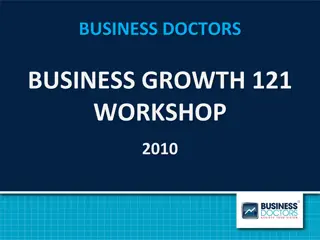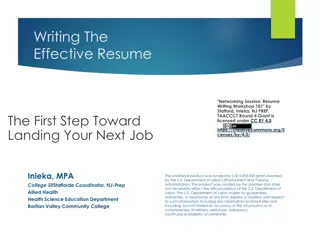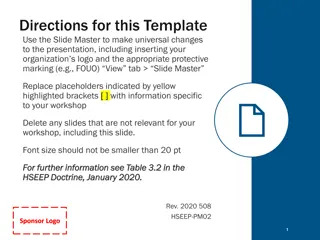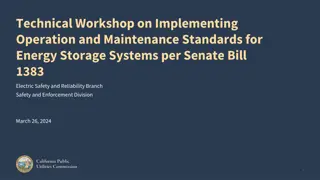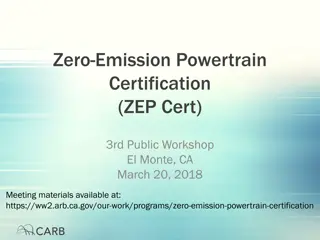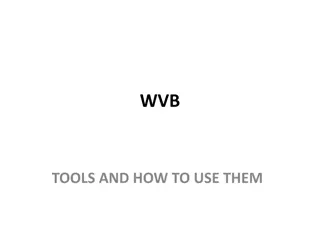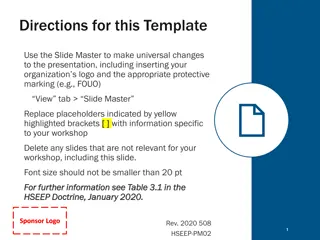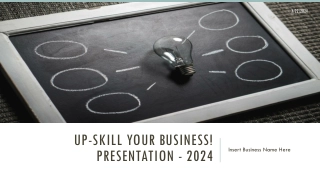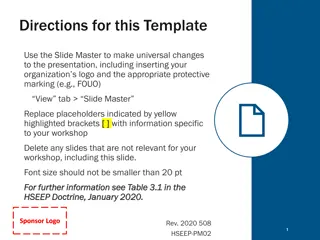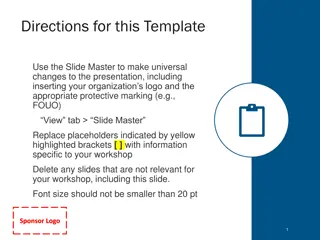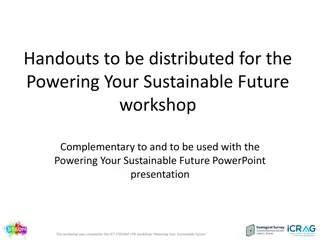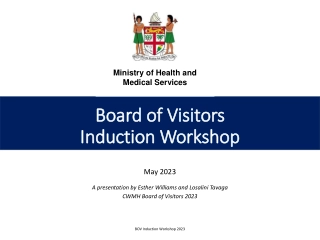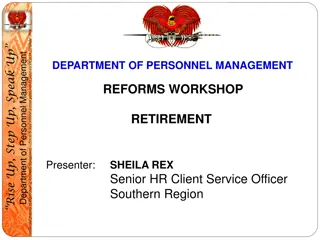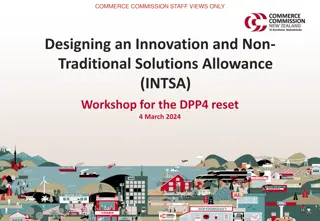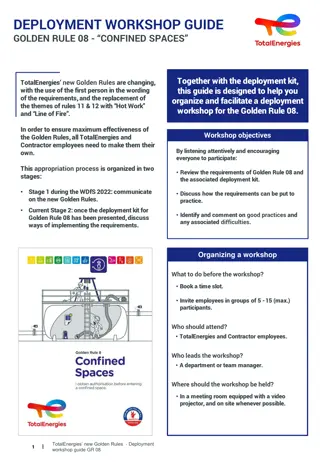Start Your Own Business Workshop - Everything You Need to Know
Discover the essential aspects of starting your own business through this comprehensive workshop. From understanding the importance of a business plan to exploring the realities of entrepreneurship, gain insights to make informed decisions about your entrepreneurial journey. Learn about business planning, the statistics of small businesses, and the key considerations in setting up your own business. Get ready to embark on your entrepreneurial path with confidence and knowledge.
- Startup Workshop
- Business Planning
- Entrepreneurship Insights
- Small Business Statistics
- Entrepreneurial Journey
Download Presentation

Please find below an Image/Link to download the presentation.
The content on the website is provided AS IS for your information and personal use only. It may not be sold, licensed, or shared on other websites without obtaining consent from the author. Download presentation by click this link. If you encounter any issues during the download, it is possible that the publisher has removed the file from their server.
E N D
Presentation Transcript
WELCOME To the Start Your Own Business Business Planning workshop
WORKSHOP EXPECTATIONS What you can expect from the workshop What are you hoping to gain from the workshop?
Objectives of the workshop To provide an overview of what you need to address To explain the need for a comprehensive business plan and what goes in it To help you understand the importance of market research, marketing and selling To enable you to make informed judgement about your next steps
Introduce yourself Tell us a little bit about yourself What is your name? What have you done to date? What is your business idea? Are you suited to being your own boss?
The reality of being your own boss Hobby v business Profit/loss v salary Decision making Do you have a support network? The reasons why businesses fail
Employment vsbeing your own boss Financial insecurity Looking after own taxes Decision making and responsibility, Losing company perks, Isolation, Dealing with the authorities, Reward, job satisfaction.
Your business What type of business are you going to start? What do you want? Income, Lifestyle, Short term/long term? What do you bring to the business? Attributes, Skills? Is there a need?
Small business statistics Businesses in the UK: 4,800,000 Small businesses (0 49 employees): 4,765,000 - 99.3% Small businesses with NO employees: 3,550,000 - 74% of all enterprises!
Business planning Bad planning accounts for 70% of business failures What is a business plan? Why have one? Who is it for? What should it contain?
The business Business name Sole trader, Partnership, or Limited Company? Where will it be based? Geographic coverage Who will run the business? Owner & key personnel What experience/skills do they possess?
Where will the business be based? Working from home Virtual offices Renting Purchasing
Which legal structure is right for your business? What we will talk about Sole Trader Partnership Private Limited Company
Legal Structure -Sole trader Easy and simple to set up Register with HMRC when you begin trading You are responsible for your tax and NI No audited accounts You are the business, total liability You can form a Limited Company later Harder raising money, no shares to sell
Legal Structure -Partnership Two or more sole traders working together Partnership agreement Jointly and severally liable for all debts
Legal Structure Limited Company Limits liabilities to the company Separate legal entity Protects owners and directors Register with Companies House Information in the public domain Shares, pension, dividends, Credibility, tax advantages, You probably need an accountant
Market Research What we will talk about Customers Competition The Need Why customers should buy from YOU? Pricing
Customers Who are your potential customers/clients? What age group, income bracket, social demographic, geographic area ? Where will you find them? What do they need?
Competition What do you know about the competition? Who are your main competitors What do they provide and what do they charge? What are their strengths What are their weaknesses (opportunity!)
The Need What is the need (now and future)? How will you satisfy the need? How much are customers prepared to pay? What sales levels can you achieve? Is the demand growing or declining Is the demand seasonal?
Why should they buy from you? Why will customers buy and continue to buy from you? How will you be different? Can you provide a service that the customer will value? Can your product/service stand out from the crowd (USP)? Why would they stop buying? How good are your communication channels to your customer?
Pricing The price you charge can make a big impression Low price = cheap / poor quality High price = luxury / quality image Pricing policy is very important cheap v. competitive Your market research will tell what your product is worth Add additional benefits to create extra value List all the things that can make a competitive difference
Marketing & Advertising Naming your business Branding & customer perception Marketing options, frequency and cost Features & benefits The seven p s AIDA The internet/online marketing Sales & selling
Naming your business What makes a good business name? Limited Company Website URL (domain name)
Branding Branding Customer perception
Marketing -options Marketing/advertising options Frequency Cost
Marketing Features & Benefits Features & Benefits Customers buy benefits not the product or service itself Features Benefits
Marketing the 7 Ps Organisations need to create a successful mix of: the right PRODUCT sold at the right PRICE using the most suitable PROMOTION in the right PLACE with the right PEOPLE displaying the correct PHYSICAL evidence implementing a PROCESS which satisfies customers
Marketing -AIDA AIDA the process by which people are motivated to act Attention Interest Desire Action
Marketing The Internet Why have a website? What should it contain? Google & search results Social Media
Marketing Sales & Selling Planning Setting objectives Product knowledge Ask questions, listen, explain benefits, close sale.
SWOT analysis What are your Strengths? What are your Weaknesses? What Opportunities are there out there? What Threats does the organisation face? Undertake a SWOT analysis of your organisation
Other considerations Insurance Legal requirements Data protection Terms & conditions Health & safety Employment law Intellectual property rights (IP)
Finances What is a Cash Flow Forecast? Profit & loss Gross profit/net profit Costs fixed/variable Capital Break even
Expenditure & income Pre-start costs/on-going costs Personal budget Sales forecast Cash flow forecast Pricing Seasonality Sources of finance
Taxes Income tax Corporation tax/dividends National Insurance VAT
Credit control State terms on invoice Consider discount for early payment Send statements, make it easy for them to pay Chase immediately if payment not received Threaten legal action, take legal action
Record keeping Organise your financial records Consider employing a book-keeper Open a separate bank account for your business Use a separate business credit card VAT registration requires identification on your invoices Ensure company returns are made on time
What are the next steps? Review the costs of starting up your business Confirm your survival budget Consider how you are going to fund your business Review what you want to earn is it realistic Refine your forecasted sales turnover Create a profit & loss projection Develop a cash flow forecast Consider how you plan to keep cash flowing



